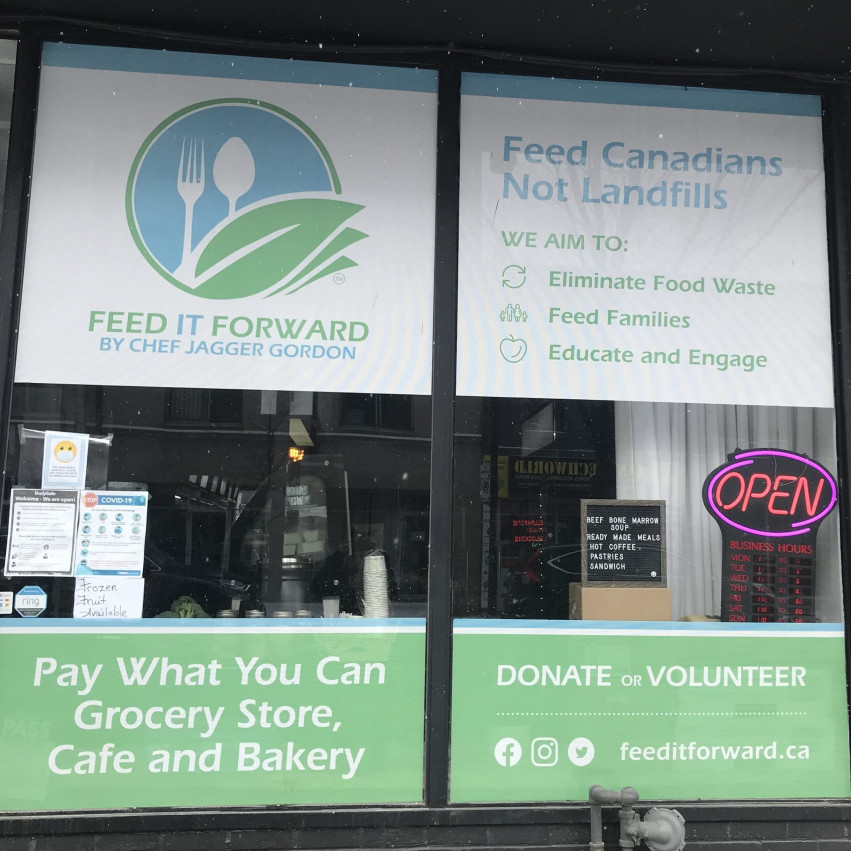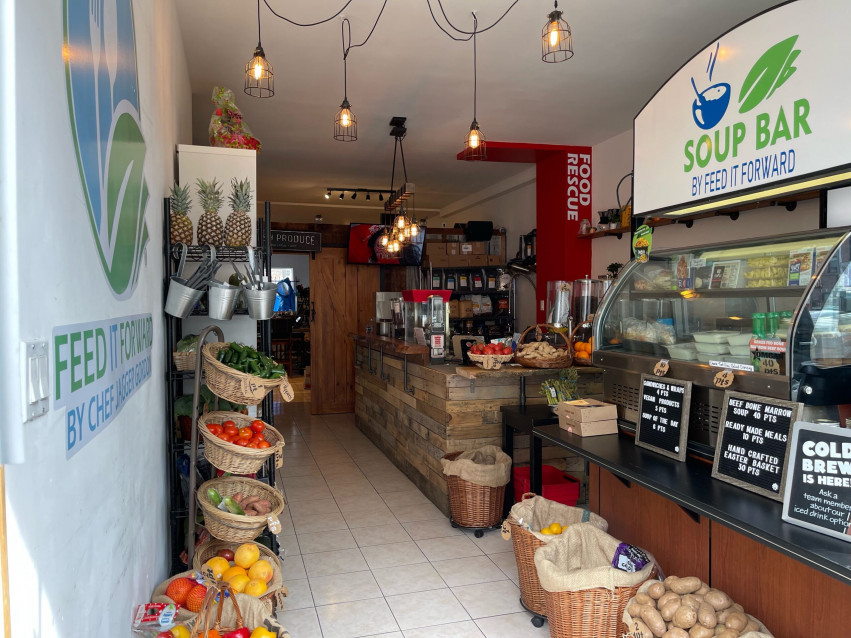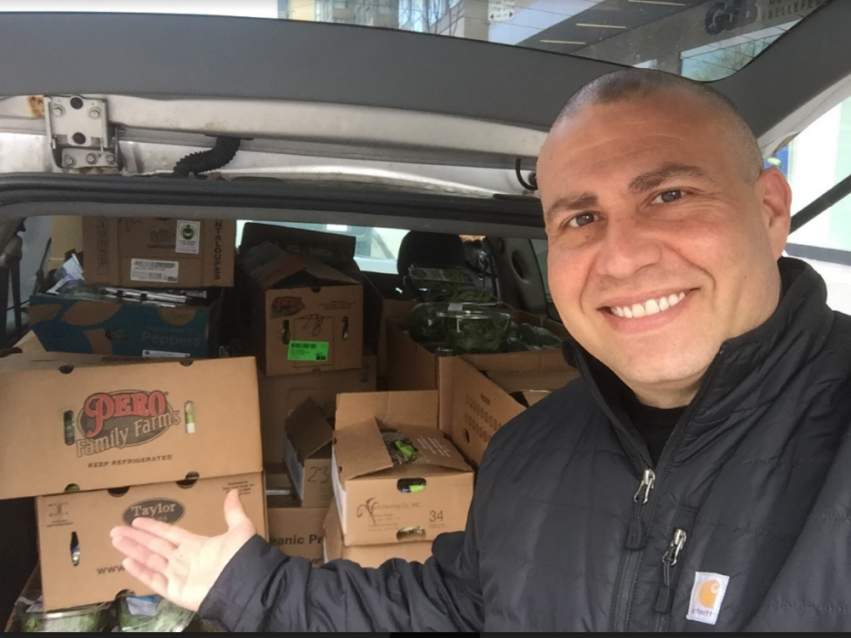Today’s Junction Business Spotlight is a rather unique one. Not only is the Junction full of amazing for-profit businesses that serve the local community and visitors, but it’s also the site of a truly innovative initiative: Feed It Forward.
Chef Jagger Gordon – the mastermind behind this not-for-profit endeavour – had a vision of giving back to not only the local community, but those around the world who are suffering from lack of food security and malnutrition. But he’s also taking a step further to help reduce food waste and our carbon footprint on the planet.
Given the fact that about half of all food produced in Canada ends up in landfills while about 20% of families currently struggle with lack of nutritious food availability due to financial strife, it makes sense that an initiative like this would be put in place. Jagger is certainly filling a void that has long needed to be filled.
Image courtesy of Feed It Forward.
There are two main goals behind Feed it Forward: feed Canadians who are food insecure and reduce food waste.
Ultimately, the organization was established to give people dignity. Anyone dealing with financial issues that stand in the way of accessing wholesome food can come and shop for what they need and not have to worry about cost.
In fact, there aren’t even any price tags on the products. Patrons simply pay what they can and get what’s needed to put on their tables.
And the products are not cheap quality, either. Instead, you’ll find organic and straight-from-the-farm products at Feed it Forward.
Image courtesy of Feed It Forward.
Not only does this nourish people, but it also helps to eliminate food waste by putting food back on people’s tables that otherwise would have ended up in landfills. Plus, it gives people a chance to be socially responsible.
Jagger has a desire to help fill the beliefs of kids, too. An empty stomach is an empty mind, and to counter this, the Pay What You Can concept helps students focus on their studies rather than their empty stomachs, while also offering free food in schools.
So, how did Jagger come up with this ingenious concept?
As a child, Jagger himself often wondered where his breakfast would come from and often relied on his community for food.
Image courtesy of Feed It Forward.
Plus, he’s also a chef. Through his culinary history and travels to 32 different countries of the world, Jagger sought to capture all the flavour profiles, food textures, and cultures from all the places he’s been to. Through his travels, he’s also seen first-hand the poverty and hunger people are suffering from, which many here in our own backyard are also suffering from.
Why the Junction? Jagger quickly noticed the many different demographics in the area, including homeowners who may still be struggling to pay the bills, as well as people who are renting rooms and are finding it difficult to feed themselves. There are lots of different levels of economics in the area, and Jagger found it important to address all aspects of the community and give people their dignity back.
Image courtesy of Feed It Forward.
One of the best things about Feed it Forward is their mobile app. People can use it to share food in their homes or businesses while others can use it to acquire the food they need before it ends up in the trash.
Pictures and information about free food can be uploaded, making the food available to anyone using the app who may need it.
The app also provides restaurants, markets, and local farmers with the chance to find new customers by supplying them with free food that would otherwise be tossed.
There is also a carbon footprint calculator. For every food product that’s exchanged by the pound, the emissions are calculated to show how much food we’ve transferred and how much we’re saving from the local landfill. Plus, it challenges cities and countries to cut back on food waste and increase the number of people being fed.
As a not-for-profit organization, Feed it Forward is made possible thanks to over 2,200 registered volunteers. They get no funding, but rather rely on the community to make donations, volunteer, and find ways to get funding.
Image courtesy of Feed It Forward.






